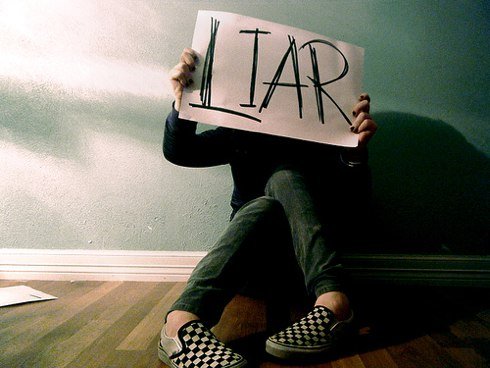Very interesting material appeared on Forbes about how to recognize lies in business communication.

©photo
Former FBI special agent and author of the book "Louder than Words" Joe Navarro tells how to recognize a liar. there are three stages of communication when you can do this: when he hears your voice for the first time, when he adapts to it and when he responds.
1. Truthful people will answer questions more often, keeping straight, with their heads held up. Liars "often bend, cross their legs and arms," says Joseph Buckley, president of John E. Reid and Associates, a company that teaches interrogation techniques to law enforcement officers.
2. To psychologically distance themselves from lies, deceivers often spice up their stories with pronouns of the second and third person — "you", "you", "they".
3. Speaking the truth, we accompany our speech with gestures, which rhythmically falls on our words and reinforces the meaning — if, of course, we believe in it. In the opposite case, we will keep the gestures under control.
4. You can't catch a skilled liar on this, but an ordinary person often fidgets, telling a lie. Shifty eyes, a higher-than-usual voice, a reddened face, heavy breathing can give the writer away.
5. Liars often ask the interlocutor again and preface their answers with the introductory words "to tell the truth", "to be honest", Buckley warns. Be wary if you get an evasive answer to a direct question.
6. People lie more often on the phone. Researching 30 college students during the week, Hancock found out that the phone has become the most frequent tool of deception (37% of cases). It was followed by personal conversations (27%), Internet messengers (21%) and emails (14%). This is not so surprising: most telephone conversations do not leave traces, and letters are kept by the addressee.
7. A liar can be betrayed by an insufficiently thought-out story. Suspecting deception, carefully ask for details.
8. According to a study conducted in 2002 by Robin Lickley, a professor at the University of Edinburgh, there are more pauses between words in a false story than in a true one.
9. Your own lies make you feel uncomfortable and even angry. According to Buckley, "while a truthful person is usually involved in his story, open and sincere, a liar is often wary, withdrawn and does not make contact."
10. Telling stories, honest people can remember about the missing detail and add it retroactively. Or retell an episode that was inaccurately told. Liars, according to DePaulo, "are afraid that they will be caught lying, and avoid admitting even trifling inaccuracies."
11. "Watch out for deviations from the usual manner of speech," advises Paul Ekman, professor emeritus at the University of California Medical School in San Francisco and head of the Paul Ekman Group, which conducts emotional training. — Some people always hesitate with the next phrase. If they start talking, it's a sign of a lie."
12. The truth—teller uses a lot of facial muscles, and the liar smiles with his lips - his eyes do not reflect his emotions.
Full story, by Helen Koster.